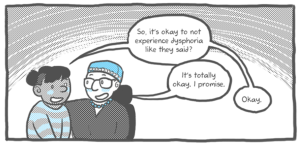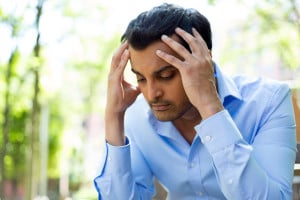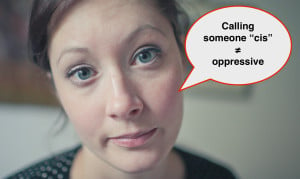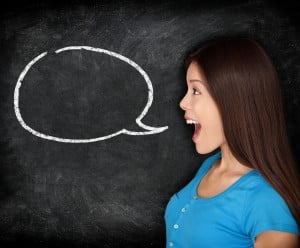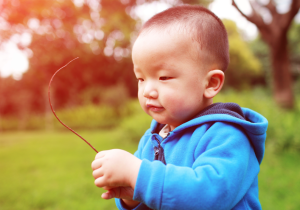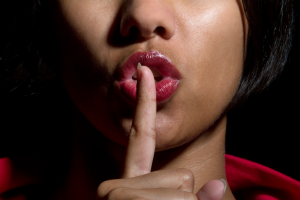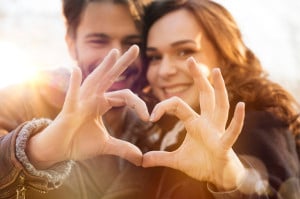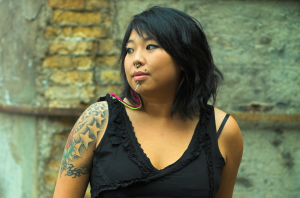Hi, welcome to Feminist Friday. It’s a series where we explore the social, the political, and the media from a feminist and an intersectional perspective… and use a lot of bad words (beep).
Today we’re going to talk about an issue that I wanted to talk about on this channel for a really long time, but I haven’t necessarily known how to approach. As a non-black person of color who is light-skinned, I recognize that I have a lot of privilege in the area of racial profiling and police brutality, so obviously when I speak about these issues, I’m coming from an area of privilege and not from first hand experience.
The dominant question that I’ve seen being asked when we talk about Ferguson and Eric Garner and any instance of unnecessary violence against people of color, particularly black people, is, “Is this an issue of race?” Black activists have been saying this since the very beginning, and long before Ferguson that yes, police brutality is an issue of race. And as the reports from the Department of Justice released this week have found, unsurprisingly there is a huge amount of racial bias in the Ferguson Police Department. Black residents living in Ferguson were significantly more likely to be stopped by police and subjected to excessive force than white residents. But this is not just an issue that is limited to Ferguson, this is an issue that is widespread across the entire country. There’s also a lot of misguided information and myths that have been perpetuated by white people and even non-black people of color. For example, in my Violence Against Women class last week, this very privileged, upper-class blonde girl gave a speech about how racial profiling isn’t a problem and people of color should just deal with it because that’s what happens when you live in America, you have to give up your rights, which as infuriating for me as that was, I can only imagine how infuriating that would be for someone who’s experienced this firsthand. So I’m going to go through and debunk some of the myths that I’ve seen being perpetuated by white people and non-black people of color that I think are particularly harmful when discussing issues of race and police brutality.
“Police brutality isn’t a widespread problem, it’s just the individual actions of a few bad cops.”
These people tend to view the murders of Michael Brown and Eric Garner as a few extreme examples and not representative of the entire police system. The problem with this is viewing police brutality as individual issues and not as a larger pattern. I’m going to link to some videos and articles and statistics below that show how much more likely black men and women are to be subjected to routine stops and excessive force. But short answer, they’re a lot more likely to have these things happen to them.
“My experience with police officers has been completely different and they’ve always been super nice to me.”
Your relationship with law enforcement is going to be completely dependent on your own identity and your perspective. A white person, or an able person, or a middle-class person, or a straight person, or a cisgender person are all going to have fundamentally different experiences with police than minority groups, based on things like race, class, gender identity, and sexual orientation. Also, I want to point out that even though black people are more likely to be stopped for having drugs on them, white people are actually statistically more likely to be carrying drugs. So is racial profiling really an efficient method, or is there another agenda involved *cough cough* mass incarceration.
“But those cops that are murdering people have families!”
Do you think Michael Brown and Eric Garner didn’t have families, or do their families just matter less because they’re not white? I just want to point out that you can criticize the police system as a whole without criticizing every single police officer. I also want to point out that the cops are not the people that need protection here. Cops are already protected by the larger systems in place. Police officers can get away with murdering a black man on camera for no reason without even getting an indictment. Cops have guns and protective gear and all the power and the system on their side and they have no accountability for their actions. It’s the minority groups that are systematically targeted and killed with no justice that need the protection. Why is it that we humanize the cops that are unlawfully killing black men and women, and dehumanize the victims of these crimes?
“The police officers were just scared and protecting themselves.”
I don’t think we can have a discussion about racial profiling without also talking about implicit biases. An implicit bias is a snap second judgment that we make about a person based on race, class, gender orientation, etc. In our society, we view black and brown people, but particularly black men, as inherently threatening and dangerous. Every single person has implicit biases. Every other time I recommend that you take the Harvard implicit association test which you can take online, and it will test you on all the biases that you might subconsciously have about people. Implicit biases are actually really interesting and super scary because they might contradict the things that we consciously believe, but they’re the snap judgments we make before we have time to consciously think about it. This is the reason why we see the self-protection defense being used so often. Saying that you were only acting out of fear and self-protection becomes a defense that makes people infallible for the violence and murder of black people. We see this not only with police officers, but with citizens who have decided to take the law into their own hands, i.e. in the case of Trayvon Martin and Renisha McBride. Immediate reactions based on split-second judgments, especially when paired with having a dangerous weapon like a gun, is what leads to the deaths of so many people of color. And that is why it’s so important and absolutely necessary that we confront our implicit biases about people when we have them, and go out of our way to keep ourselves in check.





